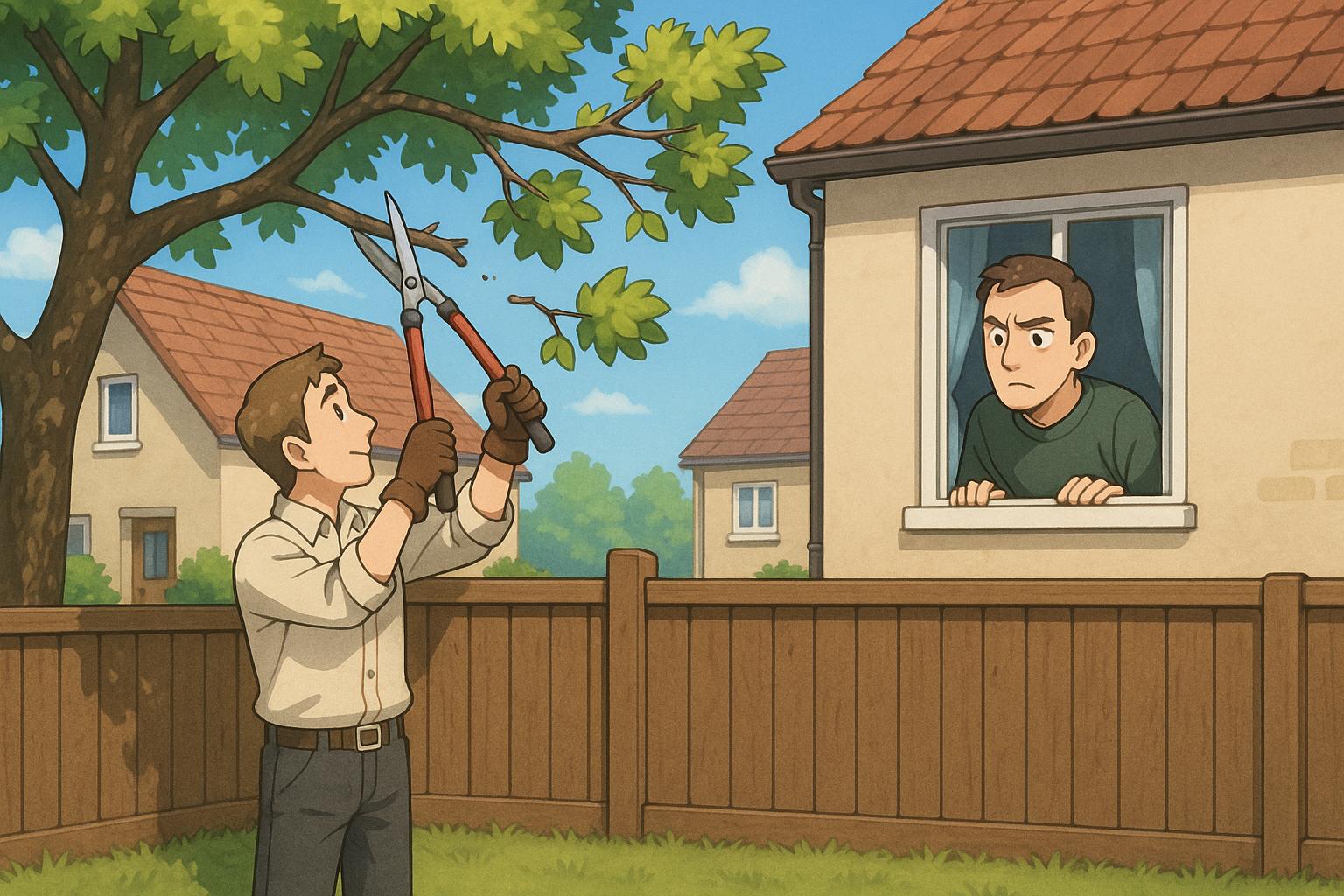When it comes to the intricate relationship between neighbours and their properties, understanding the boundaries of acceptable behaviour can be surprisingly complex. Not infrequently, homeowners find themselves embroiled in disputes over seemingly banal issues, such as the behaviour of a rowdy dog or the implications of a student's house conversion next door. These conflicts often arise from lesser-known property laws that many individuals are blissfully unaware of, leading to a range of frustrations and potential legal hassles.
In an exploration of these peculiar regulations, property expert Darren Gallagher, founder of Elite Realty Invest, shared insights into seven unusual property laws still applicable in the UK. Many of these laws can catch homeowners off guard, adding layers of complexity to everyday interactions with neighbours. Gallagher indicated the importance of understanding these regulations, as ignorance may lead to unexpected consequences.
One particularly eyebrow-raising law pertains to urinating in one's garden. Although it's technically legal if done in private, it poses risks if made public or causes distress to neighbours. Mike Hansom, a consultant for property litigation, cautioned that "if urine finds its way onto neighbouring property, causing damage, you risk your neighbour claiming damages for nuisance." This principle echoes throughout the landscape of neighbourly interactions, wherein good practice often navigates the chasm between legality and common decency.
Similarly, property owners might not realise that cutting overhanging branches from their neighbour’s tree carries an obligation to return the cuttings, a surprisingly legal nuance that can lead to civil disputes if ignored. While not returning the cuttings might seem trivial, it can have implications for community relations. Lawyers suggest that neighbours gain a better understanding of such rules to avoid escalating tensions or igniting disputes over seemingly minor issues.
Moreover, homeowners frequently overlook the legal ramifications of simple actions like looking into a neighbour's window. Persistent peering has been deemed harassment under certain circumstances, as it can infringe upon privacy rights. Legal experts note that while a one-off glance might not constitute harassment, repeated conduct can lead to serious repercussions, including potential injunctions. Similarly, curious homeowners who wish to maintain their gardens must heed caution when it comes to mowing grass verges: these areas often belong to local authorities, and tampering could invoke civil trespass claims.
The seeming innocuousness of hanging laundry in a front garden further exemplifies how property laws can loom over daily life. Local authorities may impose restrictions in conservation areas or on designated properties, making it essential for homeowners to check budding regulations that could otherwise result in fines or civil claims. Clarifying one’s rights and obligations regarding activities such as this can help pre-empt conflicts with both neighbours and regulatory entities.
Another intricate consideration is your neighbour's right to light. If they have received uninterrupted natural light through a window for over two decades, they may possess a legal right to that illumination. Construction work that impedes this light could potentially face legal challenges, underscoring the importance of community awareness in property rights.
Finally, securing planning permission for new driveways is crucial. Laying impermeable paving in front gardens without adequate drainage can pose significant legal implications, including needing to reverse the work should councils issue enforcement notices. Awareness of local regulations varies widely, marking the necessity for homeowners to consult the relevant authorities before embarking on home improvement projects.
As property landscapes become increasingly intricate, fostering knowledge of these little-known laws can empower individuals within their communities. Adhering to guidelines—in both spirit and letter—may not only help avoid litigation but also contribute to a harmonious neighbourhood environment. In a world where legal entanglements often arise from simple everyday actions, the adage “know the rules of the game” has never been more pertinent.
Reference Map:
- Paragraph 1 – [1], [2]
- Paragraph 2 – [1], [3], [6]
- Paragraph 3 – [1], [3], [4]
- Paragraph 4 – [1], [5], [7]
- Paragraph 5 – [1], [3], [4]
- Paragraph 6 – [1], [6]
- Paragraph 7 – [1], [2], [4]
- Paragraph 8 – [1], [6]
Source: Noah Wire Services
